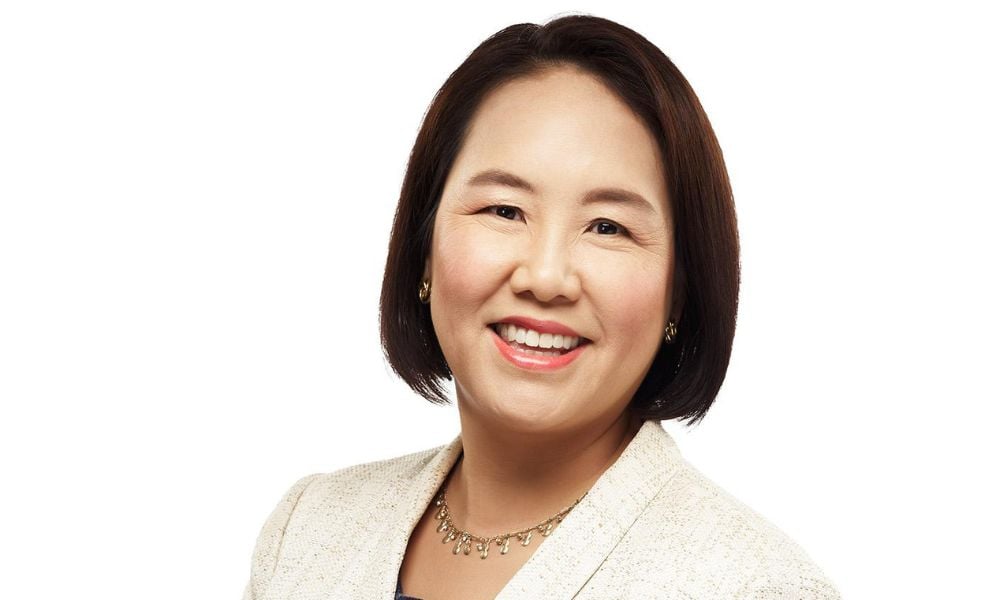Christine Ing is one of the speakers at Canadian Lawyer Young Lawyers Forum on November 29

One of the best things a young lawyer can do as they build a career is to “forgive yourself” when the work-life balance goes off balance, says Christine Ing, partner at McCarthy Tétrault LLP.
“The hardest thing is not to feel guilty as you’re trying to balance two equally important things,” says Ing, one of the speakers at Canadian Lawyer’s Young Lawyers Forum on November 29 in Toronto.
“You have to recognize that you are human and that there will always be more work to do, and while you do your level best, be honest with yourself and try not to beat yourself up.” Ing thinks it’s also essential to think of work-life balance over the long term, not on a day-to-day or week-to-week basis.
“I generally look at balance over a period of about three months,” she says. “Because law is so client-focussed, there are going to be times when you have to focus on them, but there’s probably time within a three-month period to focus on the personal. I don’t think anyone should be sweating over trying to balance every day. You need to build in some flexibility.”
Ing, leader of McCarthy Tétrault‘s national technology law group and co-leader of the fintech group, says it’s also important to reach out to those “who can help support you when you need it most.” They can often help you “lighten the load and let you know that they have your back when your in a period where work is dominating your life.”
Ing also says different people have different needs regarding work-life balance. “Some people need time away from work, others embrace it and build long hours into their lives,” she says. “You have to do what’s best for you and focus on that, not what other people are doing.”
Ing says it’s helpful for young lawyers to find an outlet to express themselves outside their law practice. “For me, it’s cooking. I love to cook, and I think I’m actually a pretty good one.” While cooking a gourmet meal may not sound like the most relaxing pastime, Ing says that it allows her to refocus her energy on something other than work and gives her a mental break by pursuing another activity.
“It gives me satisfaction and joy to cook and share my efforts with my family and friends,” she says, adding that she loves seeing herself progress in her cooking skills. She also likes to try out different types of cuisine – “these days it’s a lot of seafood.”
Ing’s path to becoming a lawyer started from an engineering background. “I come from a science family, so that was my first pursuit.” After graduating, she had the option to work for a consulting firm or pursue a master’s degree, but she also “at the last minute” wrote the LSAT. “I ended up picking law school because it felt like the right thing to do at the right time.”
Ing realized early on that while she liked practicing law, she “missed the numbers” that went along with her engineering and science background. So, that led her towards corporate and commercial law, which she then combined with her love of technology. She started practicing IP law, but a secondment to Celestica, a firm spun off from IBM, was instrumental in leading her toward a corporate and commercial law career involving technology.
Ing has helped clients with complex technology transactions for more than twenty years, including outsourcing, cloud computing, software development and systems, licensing, data sharing and joint ventures. She has particular expertise in information security and managing third-party vendor risk and has become a leading legal voice on emerging technologies, including big data, artificial intelligence and blockchain.
See the list of the best technology transactions lawyers in Canada here.
Ing’s advice to young lawyers building their practices is to “be deliberate.” By that, she means, “you can get involved in many things and go in many directions, but you have to be realistic about how much you can take on.” She adds: “Once you decide on which pursuits you’re most interested in, get involved, don’t just sit on the sidelines.”
Many firms encourage associates to build “business plans” for their practice, and while that may sound stressful, Ing says it is a “really good exercise, because it forces you to focus on what you want to do over a planning period of about a year.”
Building a plan “gets you to start thinking about where you want your career to go and how you are going to get there.”










